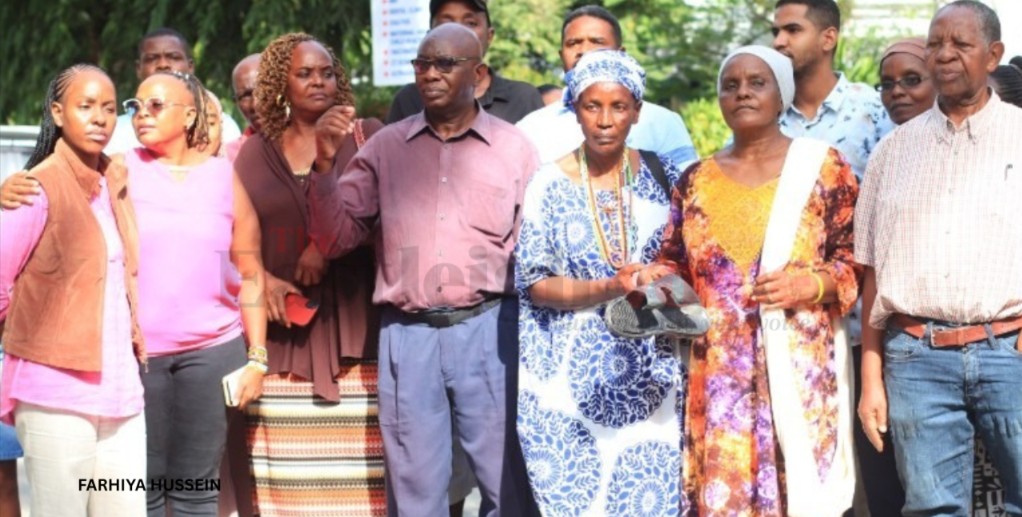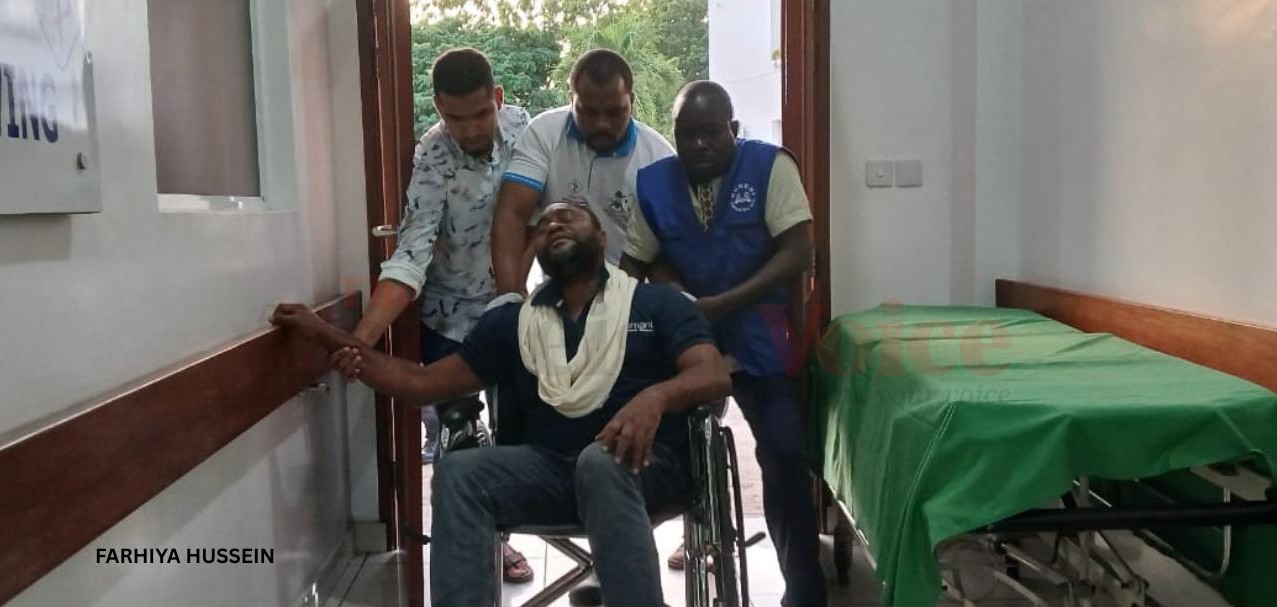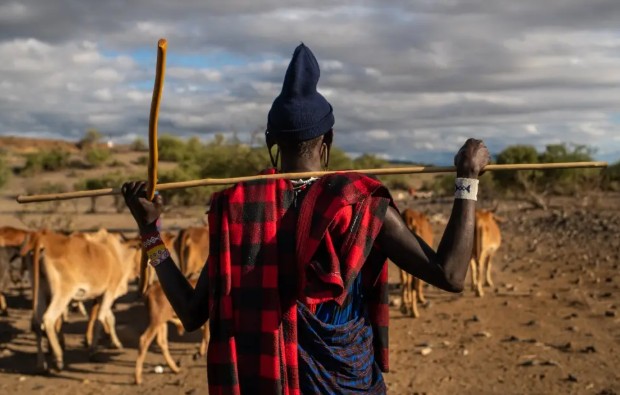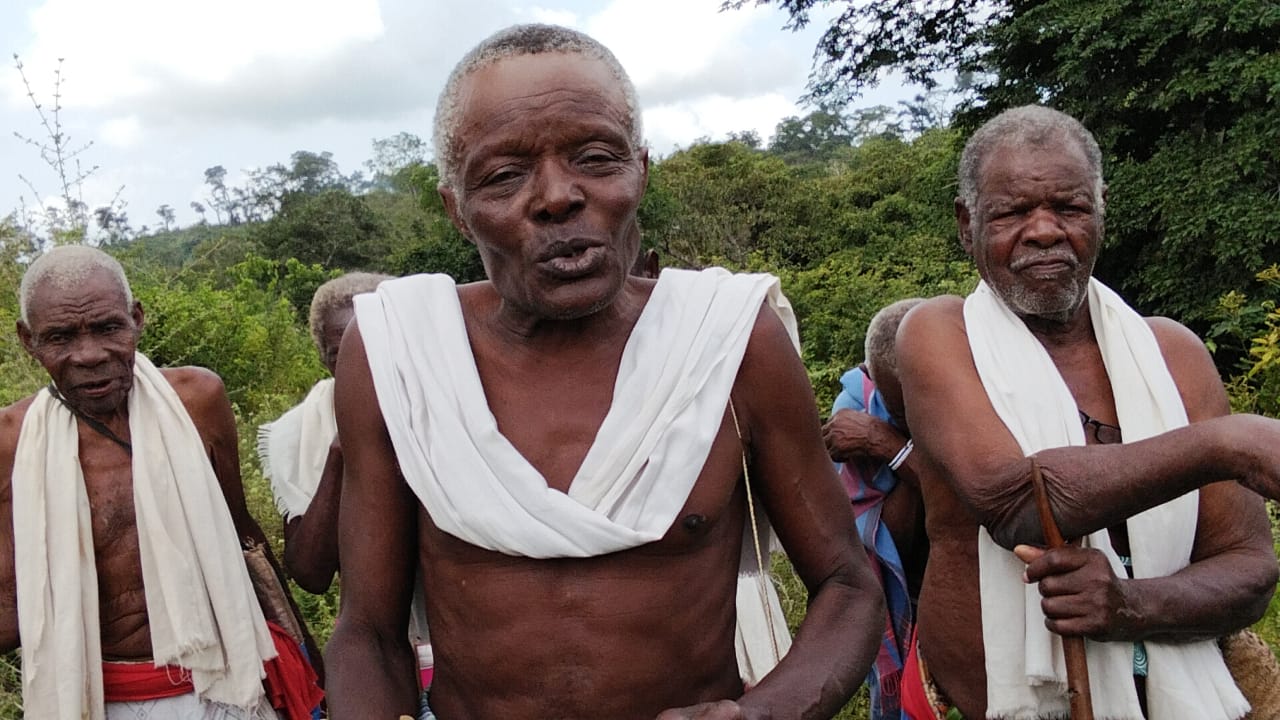PARIS 2024: Zeddy Cherotich’s historic debut ends in defeat

Zeddy Cherotich is the first female judoka to represent Kenya at the Olympics
The challenges that come with start a sport late in life showed as 34-year old KDF Sergeant Zeddy Cherotich, Kenya's first ever female judoka at the Olympics Games, fell short in the most disturbing of circumstances to her 25-year old Portuguese opponent, Patricia Sampaio, who won their -78 kg weight class contest with a double waza-ari, all executed in just 20 seconds at Champ-de-Mar Arena in Paris on Thursday.
Cherotich's need for having competed in more contest at the elite level showed as Sampaio totally dominated the first round contest to eliminate the Kenyan.
More To Read
- KNPC and Government promise change ahead of 2028 Paralympic Games
- Kenenisa Bekele opens up about Paris Olympics struggles and future plans
- Paris 2024: Data proves Kenya needs to diversify its sporting portfolio
- Kenya's Paris Olympics performance highlights need for sporting diversification
- Ruto calls for continuous improvement to build on Kenya's Olympic success
- From tears to triumph, Kipyegon reflects on emotional Paris 2024 Olympics
Cherotich started competing in judo in 2021 having made the switch from javelin after years of failing to represent Kenya in international competitions.
Going into the Olympic Games, Cherotich, Kenya's sole representative in judo at Paris 2024, had only competed on eight top level contests, winning two and losing six.
Sampaio, on the other hand, at her young age, seems like a veteran, having competed in over 50 top level contests which justify her world ranking at the 13th best judoka in her category. Cherotich, is ranked 74th.
In their duel, Sampaio scored 10 points from subduing Cherotich with a sode-tsurikomi-goshi (sleeve-lifting and pulling hip throw) after just nine seconds and killed the game 11 seconds later after overcoming the Kenyan with a kuzure-kesa-gatame (broken scarf hold).
Sode-tsurikomi-goshi and kuzure-kesa-gatame are judo techinques that judokas use to score via a waza-ari.
A waza-iri is one of the two scoring methods in judo, the other one is called, ippon.
An ippon is awarded for a perfectly executed throw that places an opponent on their back. For a point to be awarded for an ippon throw, it must be the following three criteria for a perfect throw in judo: control, speed, and strength. At this point, it is necessary to note that a throw in judo has three parts: balance (known as kuzushi), entry technique (known as tsukuri), and execution of technique (known as kake).
An ippon automatically ends a contest, and it can also be awarded for pinning an opponent for more than 20 seconds, choking an opponent until they tap out, or locking an opponent’s elbow until they tap out or the joint gets dislocated.
As for waza-ari, points are awarded for a throw that misses one of the three criteria for a perfect throw (control, speed, and strength). It is also awarded for pinning an opponent for 10-19 seconds. A judoka automatically wins a contest when they score two waza-ari, which are considered the equivalent of an ippon.
Despite her elimination, Cherotich can take pride in her place as Kenya's pioneer female judoka at the Olympic Games.
All of Kenya's previous Olympian judokas have been men and in recent interviews, Cherotich expressed hope that her lead will see many more girls take up the sport and surpass her mark.
"Judo is a good sport and I hope to see more Kenyan women compete in it,” Cherotich told Team Kenya media before she departed for Paris last month.
Following her elimination, Kenya now can only hope for medals in athletics and swimming.
Top Stories Today
Reader Comments
Trending











































